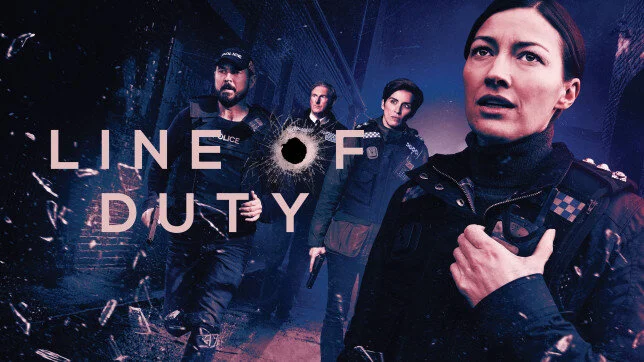The current series of Line of Duty has been attracting record audiences. The opening episode of season six of the BBC’s police drama was watched by 9.6 million viewers, breaking all previous records for the programme. The fifth episode went on to attract 9.9 million viewers, making it the second-most watched drama across all channels in many years. Those us of who catch up with the series during the week also helped BBC iPlayer to its best quarter on record.
With the series about to reach its dramatic conclusion, even more records could topple as Superintendent Ted Hastings and his team at Anti-Corruption Unit 12 hunt ‘bent coppers’ all the way to the top echelons of the Police Service.
So what is it about the show that makes it such compelling viewing? Is it Jed Mercurio’s writing? Is it the characterisation? Is it the actors, such as Glasgow’s Kelly Macdonald or Greenock-born Martin Compston? Is it the Belfast backdrop which gives a recognisable feel to fictional areas like Moss Heath?
I would argue that above all, what makes the series so gripping is that deep down, we all have a powerful longing to see justice done. To see injustice and corruption rife among the very people who should be protecting the public and bringing criminals to justice, is almost too much for us to bear. And so we long to see those pulling the strings unmasked and brought to justice. To have the book thrown at them, as Hastings would put it.
In sport, in the rule of law, in our work – in every area of our lives we have a burning desire to see fairness reign and justice prevail. From players surrounding a referee on a Saturday after a poor decision, to drugs cheats winning medals – from the anger at seeing an incompetent colleague promoted, to seeing dangerous criminals get away with a slap on the wrists – our desire for justice pervades every area of life.
But identifying our longing for justice is one thing. Explaining why it’s so innate is another. After all, if the human race has got to where it is today by the survival of the fittest, then there wouldn’t seem to have been much room for justice in our development.
And if justice is just a social construct, why does it mean so much to us? Why is there so much anguish when murderers like Harold Shipman take their own lives and (seemingly) escape the punishment they deserve?
For me, the Bible’s explanation of why we care so much about justice is far more compelling. This deep-rooted desire for justice in us all comes from the fact that we’re created in the image of a God of justice. The Bible tells us a number of times that ‘the LORD loves justice’. We were created in his image – and remnants of that image remain in us all.
And yet while the Bible explains where our desire for justice comes from, the fact that there’s a God of infinite justice isn’t automatically good news for us. Because one day, it will be our turn to stand in the dock. God tells us that ‘all have sinned and fall short of the glory of God’ (Romans 3:23). And even if our good deeds could somehow outweigh our bad, that wouldn’t be enough – God’s standard is perfection.
Nor can we take the attitude that if something happened a long time ago, it doesn’t matter. Historical abuse enquiries rightly seek to bring people justice, despite the fact that their crimes may have been perpetrated decades ago. A just judge won’t ignore wrongdoing, just because many years have passed.
And so the fundamental question of Christianity is how God can forgive sin and still be just. If God ignored wrongdoing, he would cease to be God. As someone has put it, ‘The moral fabric of the universe would tear in pieces if God were not fair’.
And yet in God’s infinite wisdom he has provided a way in which we can be forgiven, and he can still be just. When Jesus died on the cross, he did so bearing the sins of all his people. Martin Luther called it ‘The Great Exchange’ – Jesus takes our wrongdoing on himself, while his record of perfect obedience is counted as ours.
And so as we await Line of Duty’s climax, we know that a far more significant day of reckoning lies ahead. But because of Jesus, his people can look forward to it without fear.
An updated version of this article appeared in the Stranraer & Wigtownshire Free Press, 6 May 2021


